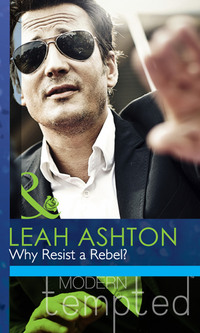
Полная версия
Behind The Billionaire's Guarded Heart
Others—the work of the woman Hugh had employed to help his mother—had detailed labels and colour-coded stickers: a relic of Hugh’s attempts to organise his mother’s hoard into some sort of system.
But his mother had resisted—joyfully creating ridiculous categories and covertly shuffling items between boxes—and in the end her frustrated assistant had correctly informed Hugh that it was an utter waste of time.
Which he’d already known—but then, what option had he had?
Doctors, specialists, consultants...all had achieved nothing.
How could they? When his mother knew exactly what she was doing?
She’d been here before, after all. Before Len. When it had been just Hugh and his mum and her hoard. And her endless quest for love.
With Len she’d finally had the love she’d searched for for so long. A love that had been powerful enough to allow her to let go of all the things she’d collected in the years since Hugh’s father had left them. Things she’d surrounded herself with and held on to so tightly when she’d been unable to possess the one thing she’d so badly wanted: love.
Without Len his mother had believed that her hoard was all she’d had left. And, despite still having Hugh, despite his desperate efforts, it hadn’t been enough.
He’d been helpless to prevent the hoard that had overshadowed his childhood from returning.
Hugh closed his eyes.
There was so much stuff in this room that if he walked another step he would walk into a wall of boxes.
It was exactly the same in almost every room in the house—every living space, every bedroom. Except the kitchen, halls and bathrooms—and that was only because of the staff Hugh had employed and his mother’s reluctant agreement to allow them into the house each day.
So that was all he’d managed: to pay people to keep the few bits of empty floor space in his mother’s house clean. And to clear a safe path from her bedroom to the front and back doors in case of a fire.
Really, it was not all that different from how it had been when he’d been ten. Except this time he’d had loads of money to outsource what he’d only barely managed as a kid.
And this place was a hell of a lot bigger than the tiny council flat he’d grown up in.
He opened his eyes, but just couldn’t stare at those awful uniform boxes any more.
Back in the entry hall, Hugh grabbed his laptop and backpack, ready to leave...but then he stilled.
The new paint on the door was still wet. He wasn’t going anywhere.
But he also wasn’t going to be able to work—it would seem that three years had done nothing to ease the tension, the frustration and the hopelessness that those damn boxes elicited within him.
Even waiting another three years—or ten—to deal with them wasn’t going to make any difference.
They’d still represent a lot more than they should.
They needed to go. All of them.
This house needed to be bright and light once again. It needed to breathe.
So he sat back down on the bottom step of the grand old staircase, knowing exactly what he was going to do.
It was time.
* * *
It had started with confusion at the supermarket checkout.
‘Do you have another card?’ the checkout operator had asked.
‘Pardon me?’ April had said—because, well, it had never happened to her before.
It had, it seemed, happened several times to the not particularly patient operator—Bridget, according to her name tag. She’d studied April, her gaze flat, as April had tried what she knew to be her correct PIN twice more.
And then, as April had searched hopelessly for an alternative card—she’d cut up every single card linked to the Molyneux Trust back in Perth—Bridget had asked her to move aside so she could serve the next in a long line of customers.
April had dithered momentarily: was she supposed to return the Thai green curry ready-meal, the bunch of bananas and bottle of eye make-up remover to the shelves before she left?
But then the weight of pitying stares—possibly only imagined—had kicked in, and April had exited the shop as fast as she’d been able, her sneakers suddenly unbelievably squeaky on the supermarket’s vinyl flooring.
Now she was at home, still in her gym gear, on her butter-soft grey leather couch, her laptop before her.
For only the second time in the four weeks since she’d been in London she logged in to her internet banking—the other time being when she’d set up her account at the bank. Her fully furnished flat didn’t come with a printer, so she’d have to scroll through her credit card statement onscreen.
But it was still easy to see the reason for her mortification at the checkout—she’d maxed out her credit card.
How was that even possible?
She’d been so careful with her spending—more so as each still jobless week had passed.
She hadn’t bought any new clothes for weeks. She’d stopped eating at cafés and restaurants, and had instead become quite enamoured with what she considered a very English thing: convenience stores with huge walls of pre-made sandwiches in triangular plastic packaging. And microwaveable ready-meals for dinner.
They must only be costing a few pounds a meal, surely?
She had joined the gym, but that had seemed very cheap. And fortunately the flat came with Wi-Fi, so she hadn’t had to pay for that.
So where had all her money gone?
Five minutes later she knew.
With pen and paper, she’d documented exactly where her money had been spent.
Her rent—and four weeks’ deposit—was the biggest culprit. Only now did it dawn on her that even if she did get one of the many, many jobs she’d been applying for, her starting salary would barely cover her rent. With absolutely nothing left over for sandwiches in plastic triangles.
She flopped back onto her couch and looked around her flat.
It was small, but—if she was objective—not that small. And it was beautifully furnished. Expensively furnished. Her kitchen appliances were the same insanely priced brand she’d had back in Perth. Her small bathroom was tiled in floor-to-ceiling marble.
She even had a balcony.
But she couldn’t afford a balcony. She couldn’t afford any of this.
Because she didn’t have any money. At all.
Not for the first time in four weeks, she wondered if she’d made a terrible mistake.
The first time had been after she hadn’t got the first job she’d been interviewed for.
Now, several job interviews later—and many more applications that had led to absolutely nothing—her initial optimism astounded her. She literally had a degree, an internship and then almost ten years of nothing.
Well—not nothing. But nothing she was about to put on her CV. A million followers and a charitable foundation that she’d established herself could possibly sound impressive to some HR departments. But they weren’t relevant to the environmental officer roles she was applying for.
And, just as importantly, they would reveal her real name. And she just couldn’t do that.
Although it was tempting at times. Like tonight. How easy it would be to still be April Molyneux and organise the reissue of one of the many credit cards linked to her insane fortune? By this time tomorrow she could be eating all the Thai green curry she wanted.
She could even upgrade to a far more impressive flat.
April pushed herself up and off the couch, to search for something to eat in her lovely kitchen.
Her fridge was stocked only with expensive Australian Riesling, sparkling designer water—also expensive—a partially eaten wheel of camembert cheese—expensive—and the organic un-homogenised milk that she’d bought because she’d liked the pretty glass bottle it came in—probably also more expensive than it needed to be.
April felt sick.
Was she really so disconnected from the reality of what things cost?
Her whole life she’d known she was rich. But she’d thought she still had some sense of the reality of living in the real world: without a trust fund, without the mansion your mum had bought for you.
She’d liked to think she’d projected some sort of ‘everywoman’ persona to her Instagram and Facebook followers. That despite the good fortune of her birth that she was really just like everybody else.
She poured herself a bowl of probably overpriced granola and used up the rest of her fancy milk, then sat back in front of her laptop.
Earlier today, before heading to the gym, she’d scheduled the next couple of days’ worth of social media posts.
April Spencer might be in London, but April Molyneux—to her followers, anyway—was still in Perth, effortlessly adjusting to her new single life.
Before she’d dyed her hair she’d made sure she’d honoured every single product placement agreement she’d signed, and had posed for months’ worth of photos. She’d taken even more selfies, with all manner of random backgrounds—she’d come up with something to caption them with as she needed to.
Plus she still took random photos while here in London—the habit was too ingrained for her to give it up completely. She just made sure her hair and anything identifiably London wasn’t in any of the photos. So the book she was reading...the shade she’d painted her toenails...that kind of stuff. All was still documented, still shared, interwoven with her blonde April photos and carefully coordinated with her assistant back home—thankfully still paid for by the Molyneux Foundation.
So her social media life carried on. Her followers continued to grow.
And what were they seeing?
She scrolled down the page, taking in her last few years of photos in a colourful blur.
A blur of international holidays, secluded luxury Outback retreats, designer shoes, amazing jewellery, beautiful clothes, a gorgeous husband and attractive—wealthy—friends.
They were seeing an unbelievably privileged woman who had absolutely no idea what it was like to exist in the real world.
April slapped her laptop screen shut, suddenly disgusted with herself.
And ashamed.
The whole point of all this—the move to London, her quest for a job, living alone for the first time in her life—had been about finding herself. Defining who she was if she wasn’t Evan’s wife. Or one of the Molyneux heiresses.
But so far all she’d achieved was a self-indulgent month during which she’d patted herself on the back for ‘living like a normal person’ but achieved absolutely nothing other than a new, reasonably priced wardrobe.
She knew her mum, Ivy and Mila all assumed this was just a bit of a game to her. They assumed that once she did eventually get a job she’d supplement her income with Molyneux money. On reflection, no one had pointed out the now damned obvious fact that she couldn’t afford this apartment.
And, unlike April, they would know. Mila had never used her Molyneux fortune: she knew exactly how far a dollar or a pound could stretch. And Ivy had dedicated her life to building up the Molyneux fortune—so she knew, too.
She couldn’t even be annoyed with them. Up until tonight, and that stupid, sad ‘declined’ beep at the cash register, they’d been right.
They’d been right to think that their pampered middle sister couldn’t cut it in the real world.
And, if she was brutally honest, she hadn’t even been trying. She’d thought she had, but people in the real world didn’t have no income for a month—and no savings—and then casually take their time applying for some mythical perfect job while living in a luxury apartment.
She flipped her laptop open again.
She needed to find a job. Immediately.
CHAPTER TWO
SHE HAD A nice voice, Hugh thought.
Unquestionably Australian. Warm. Professional.
She didn’t sound nervous, although she did laugh every now and again—which was possibly nerves. Or possibly not. Her laugh was natural. Also warm. Pretty.
Hugh’s lips quirked. How whimsical of him. How unlike him.
Currently, April...he glanced down at the printed CV before him...April Spencer was answering the last of his four interview questions.
Rather well, actually.
He leant back in his chair, listening carefully as her voice filled the room, projected by the speakers hooked up to his laptop.
This was the third interview his recruitment consultant had organised, although the other two applicants had been quite different from April. One an art curator, another an antique specialist.
Both complete overkill for the position. He’d been clear with the consultant, Caro, that his mother’s collections were not of any monetary value—although Caro had made some valid points that knowledge of antiques and curation skills might still be of use.
But still... He felt as if employing either skill-set would be pretending that all those boxes were something more than they actually were. Which was a hoard. A hoard he wanted out of his life.
‘...so I feel my experience working for the Molyneux Foundation demonstrates my understanding of the importance of client privacy,’ April said as she continued her answer. ‘I regularly dealt with donors who requested their names remain absolutely confidential. At other times donors wished for their donation—whether it be product, service or otherwise—to be announced at a date or time suitable to their company. In both scenarios complete discretion was essential.’
‘But your role at the foundation, Ms Spencer, was as social media coordinator,’ Hugh prompted, scanning her CV. ‘Why would you have access to such sensitive information?’
There was the briefest pause. ‘It’s quite a small foundation,’ April said, her tone confident. ‘And I worked closely with the managing director. It was my job to schedule posts and monitor comments—I needed to know what to announce, and also what comments to remove in case anyone gave one of our generous benefactors away.’
From the notes Caro had provided, it seemed April’s work with the Molyneux Foundation had been the reason she’d been put forward. Hugh had made it clear that a proven ability to maintain strict confidentiality was essential for this position.
‘And you’re available immediately?’ he asked.
‘Yes,’ April said.
Hugh nodded at the phone. ‘Right—thank you, Ms Spencer,’ he said. ‘A decision will be made shortly.’
Then he ended the call.
* * *
After the interview April left the small meeting room and returned to the recruiter’s office.
It had all been rather bizarre. She’d come in this morning expecting to be assigned to an interview for something similar to her two jobs so far—both short-term entry level social media roles to cover unexpected leave—and yet she’d been put forward for a job unpacking boxes, with a phone interview to take place almost immediately.
Across from her, at her large, impressive desk, sat Caroline Zhu, the senior recruiter at the agency April had been working for since her supermarket debacle three weeks earlier.
‘I’m sorry,’ April said. ‘I don’t think the interview went particularly well.’
Terribly, actually. She felt she’d answered the questions well enough, but Hugh Bennell had barely said a word. Certainly not a word of encouragement, anyway.
‘Possibly,’ Caro said, in the no-nonsense voice that matched her jet-black no-nonsense ponytail. ‘But unlikely. It’s been several years since Mr Bennell has required my services, but I’m certain his interview technique has not changed. He is not one for superfluous conversation.’
April nodded. Yes, she’d got that.
It fitted, she supposed—her frantic internet searching in the short period of time she’d had before her interview had revealed little about Hugh Bennell. She knew of Precise, of course—practically everyone with a smartphone would have at least one app from the company. April, in fact, had about six, all related to scheduling, analytics and online collaboration. But, unlike other international tech companies that were synonymous with their founders, Hugh Bennell was no more than a name on the company website—and the subject of several newspaper articles in which a string of journalists had attempted to discover the man behind such a massive self-made fortune.
But all had failed.
All April had learnt from those quickly skimmed articles was that Hugh had grown up in council housing in London, the only child of a single, hard-working mother. As soon as he’d left university it had been as if he’d wiped all trace of himself from public record—she’d found no photos of him, and his Wikipedia entry was incredibly brief.
It was strikingly unusual in this share-everything world.
Mysterious, even.
Intriguing, actually.
‘You’ll know soon enough,’ Caroline continued. ‘In my experience, Mr Bennell makes extremely swift decisions.’
‘Are you able to tell me a bit more about the position?’
Caroline raised an impatient eyebrow. ‘As I said, the information Mr Bennell provided is limited. He has a room full of a large number of boxes that require sorting and disposal. Not antiques. Nothing dangerous. He requires someone trustworthy and hardworking who can start immediately. That’s all I can tell you.’
‘And you thought I was suitable because...?’
‘Because you’re keen to work as much as possible for as much pay as possible. You were quite clear on that when we first met.’
True. After some judicious reimagining of her work experience—she’d repositioned herself as April Spencer, Social Media Manager at the Molyneux Foundation, which was technically true—she’d turned up at the best-reviewed temp agency within walking distance of her overpriced flat at nine a.m. the Monday after her credit card had been declined.
She’d been absolutely—possibly over-zealously—clear in her goals. To work hard and earn as much money as she could. In fact, she’d even found a night job, stacking shelves at a supermarket near her new home.
She needed her credit card debt cleared pronto. She needed money yesterday.
Fortunately Caroline Zhu had seemed to consider her desperation-tinged enthusiasm a positive.
The phone rang in pretty musical tones.
‘Ah, here we go,’ Caroline said, raising her eyebrows at April. She picked up the phone, had the briefest of conversations that ended with, ‘Excellent news, Mr Bennell. I’ll let the successful applicant know.’
She hung up and turned back to April.
‘Just as I thought,’ Caroline said. ‘I’m rarely wrong on such things. Mr Bennell has selected you as his preferred candidate. You start immediately.’
‘Unpacking boxes?’
‘For a mouthwatering sum an hour.’
‘I’m in,’ April said with a grin.
Caroline might have let slip the slightest of smiles. ‘You already are. Here’s the address.’
* * *
Hugh Bennell’s house was beautiful.
It felt familiar, actually—she’d stayed with her mum and sisters at a similar house for Christmas, many years ago. It was the year she and her sisters had campaigned for a white Christmas and, like so many things in her childhood and adult life, it had just happened.
She straightened her shoulders, then knocked on the front door.
She’d been told Hugh Bennell would be meeting her—which had surprised her. Surely the boss of a company like Precise had staff to deal with a lowly employee like herself?
But then, she’d supposed he also had staff to interview lowly employees like herself—and he’d already done that himself.
If anything, it just added to the general sense of mystery: mysterious boxes for her to unpack, complete with a mysterious billionaire CEO who was mysteriously hands-on with the recruitment of unskilled labour.
It was late morning now. She hadn’t had time to change, so she still wore what she now considered her ‘interview suit’. Her shoes were freshly polished, and her hair was looped in an elegant low bun that she was rather proud of. Her stylist back in Perth would be impressed.
The liquorice-black door opened.
And revealed a man.
A tall man. With dark hair, dark stubble. Dark eyes.
Dark eyes that met her own directly. Very directly.
Momentarily April felt frozen beneath that gaze.
So this is what a mysterious tech billionaire looks like.
Jaw-droppingly handsome.
She blinked. ‘Good morning,’ she said, well practised from years of socialising at every event anyone could imagine. ‘I’m April Spencer. Are you Mr Bennell?’
He nodded. ‘You got here quickly.’
‘I did,’ she said. ‘The agency emphasised the urgency of this placement.’
Silence. But, despite her usually sparkling conversational skills, April didn’t rush to fill it. Instead she simply stood still beneath Hugh Bennell’s gaze.
He was still looking at her. Unreadably but intensely. It was a strange and unfamiliar sensation.
But not entirely uncomfortable.
There was something about him—the way he stood, maybe—that created a sense of calm. And of time.
Time to take a handful of moments to study the man before her—to take in the contrast of his black hair and olive skin. To admire the thick slashes of his eyebrows, the sharpness of his cheekbones, the elegance of his mouth.
He was more interesting than gorgeous, she realised, with a slightly crooked nose and an angular chin. His too-long hair and his stubble—forgotten, she was sure, rather than fashionable.
But it was that sum of those imperfect parts that made a darkly, devastatingly attractive whole.
And definitely not what she’d been expecting.
Whatever she’d thought a mysterious billionaire who deliberately shunned the spotlight would look like, this was not it.
He was also nothing like Evan.
That realisation came from left field, shocking her.
April blinked again. What was she doing?
‘Please come in,’ Hugh Bennell said. As naturally as if only a beat of time had passed.
Maybe it had?
April felt flustered and confused—and seriously annoyed with herself.
She’d just met her new boss. She needed to pull herself together.
She was probably just tired from the long hours she’d been working.
But did tiredness explain the way her gaze documented the breadth of her new boss’s shoulders as she stepped inside?
Nope.
There was no way she could pretend she didn’t know what the fireworks in her belly meant. It had just been a long time since they’d been associated with anyone but her husband.
And a pretty long time since she’d associated them with Evan.
She squeezed her eyes shut for a second.
No. No. No, no, no.
She had not flown halfway around the world to turn into a puddle over a man. Over her boss. No matter how mysterious.
That certainly wasn’t why she was working two jobs and sharing a room in a truly awful shared house.
She’d come to London to live independently. Without her mother’s money for the first time in her life and without Evan for the first time since she was seventeen.
And she needed this job. She certainly needed the very generous hourly rate.
She didn’t need fireworks, or the heat that had pooled in her belly.
‘Miss Spencer?’
April’s eyes snapped open. ‘Sorry, Mr Bennell.’
‘Are you okay?’ he asked.
He did have gorgeous eyes. Thoughtful eyes that looked as if a million things were happening within them.
‘Of course,’ she said with a deliberate smile.
He inclined his chin, somewhat sceptically. ‘I was just saying that we’ll run through your responsibilities in the kitchen.’
She nodded, then followed him down the narrow hall beside the rather grand if dusty staircase.
As they walked April did her absolute best to shove all thoughts of fireworks or heat firmly out of her mind—and her body. Frustratingly, Hugh’s well-worn, perfectly fitted jeans did nothing to help this endeavour.
Neither did the unwanted realisation that—for the first time since Evan had told her he didn’t love her and her sparkling life had been dulled—she felt truly alive.












